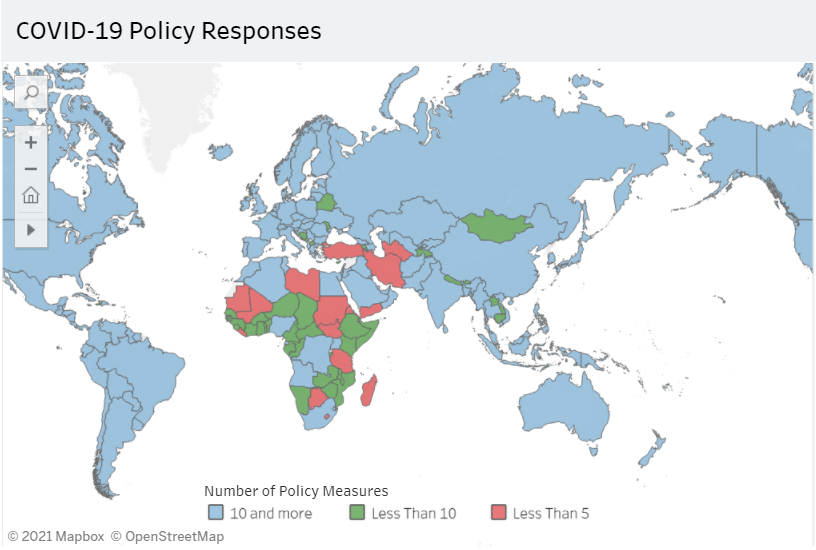Strengthening social protection for pandemic response
 The COVID-19 pandemic and response measures adopted by governments around the world to curb it has disrupted the functioning of societies and economies and generated grave health and socio-economic implications. Member countries’ social protection response have played a key role in curbing the impact of the pandemic on the most vulnerable population groups, the project aims to enhance capacity for social protection, strengthen gender emphasis, and improve poverty measurement.
The COVID-19 pandemic and response measures adopted by governments around the world to curb it has disrupted the functioning of societies and economies and generated grave health and socio-economic implications. Member countries’ social protection response have played a key role in curbing the impact of the pandemic on the most vulnerable population groups, the project aims to enhance capacity for social protection, strengthen gender emphasis, and improve poverty measurement.
A key outcome of the project is the COVID-19 Stimulus Tracker: Global Observatory on Social Protection Policy Responses. This interactive platform presents COVID-19 responses announced in 194 countries around the world, with data harmonized across regions to facilitate regional and global comparisons, and with a knowledge platform for governments and practitioners for peer learning and informing policy. To date, the tracker has mapped 6,608 COVID-19 stimulus policy responses under seven policy areas.
The project has supported regional exchange of best practices and experiences in responding to the COVID-19 pandemic through social protection. Regional activities have further been combined with targeted, country-specific support, such as technical assistance to develop national social protection strategies, and technical assistance to strengthen the implementation of its household social registry. To improve poverty measurement, a methodological study presenting a viable approach for predicting the evolution of multidimensional poverty in developing countries amid COVID-19 related challenges has been conducted. Application of the methodology will enable authorities to better understand the impact of COVID-19 on human development and to define, design and adopt relevant policy measures.
To help address the unsustainable care burden placed on households and particularly women during the COVID-19 pandemic, most regions have now mapped existing policy responses and the extent to which these integrate gender and care, complemented by country studies to identify existing challenges and emerging needs of Member States. Such capacity building efforts have supported the creation of a district care systems. Work is also underway to recognize care as a universal right, with legislative developments to reform constitutions, integrating the right to care and co-responsibility between women and men, families, community, the market and the State. Work has further been undertaken to conceptualize action plans within a gender-responsive budgeting framework and to situate care economy issues across line ministries and ensure a whole of government approach.
Looking forward, collaboration with the ASEAN Secretariat and the ASEAN Committee on Women has been established to develop policy guidelines on the care economy and to support Governments in developing comprehensive policies. The policy guidance is expected to be launched at the ASEAN Summit later this year. In addition, the tool enabling practitioners to apply the methodology for predicting the evolution of multidimensional poverty in developing countries amid COVID-19 related challenges will be presented to Member States in the Arab region through capacity building forums.
Read more about the Development Account’s COVID-19 response.